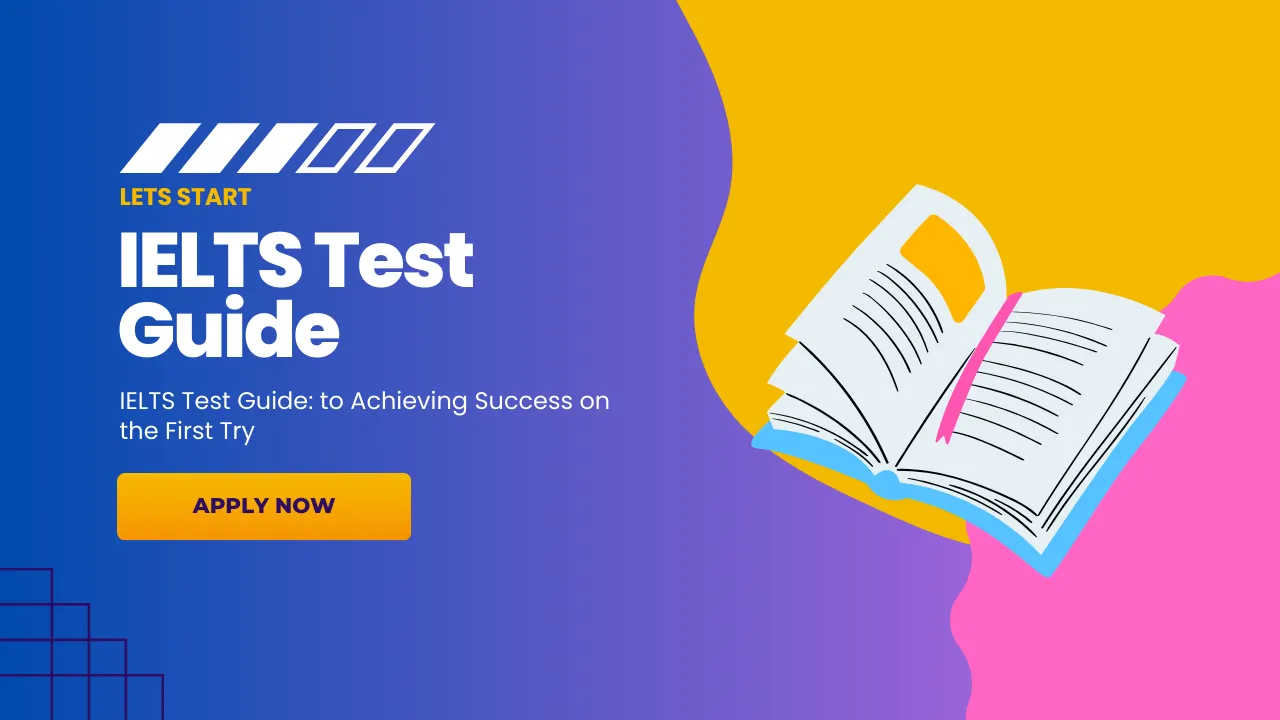IELTS Test Guide: to Achieving Success on the First Try

Preparing for the IELTS exam can feel overwhelming, especially if it’s your first attempt. This guide will take you through everything you need to know about the test structure, scoring, and preparation strategies to help you succeed. By following the advice here, you can increase your confidence, improve your English skills, and maximize your chances of reaching a high score on the IELTS.
What is the IELTS Test and Why Is It Important?
The IELTS, or International English Language Testing System, is a standardized test that assesses English proficiency for those looking to study, work, or migrate to English-speaking countries. With recognition across institutions in the UK, Canada, Australia, and beyond, a strong IELTS score can open doors to opportunities worldwide. Scoring well on this test demonstrates not only your language ability but also your readiness to integrate into an English-speaking environment.
Understanding the IELTS Format
The IELTS exam is divided into four key sections: Listening, Reading, Writing, and Speaking. Each section assesses different language skills, and understanding the format is crucial to performing well. For instance, the Listening section requires attention to detail, while the Speaking section assesses fluency and coherence. Each section is scored individually and then averaged to create an overall band score, typically ranging from 1 to 9. Most universities and employers require a score of at least 6 or 7.
Best Preparation Tips for Each Section
Listening
The Listening section is often considered one of the most challenging parts of IELTS, as it requires understanding various accents and fast-paced dialogue. To excel in this section, practice listening to English audio materials like podcasts, news broadcasts, and TED Talks. Focus on identifying keywords, taking quick notes, and learning to anticipate the types of questions asked.
Reading
The Reading section measures your ability to comprehend and interpret information from different types of texts. To prepare, practice reading articles, journals, and essays. Time yourself to ensure you can read quickly and retain information. Learning to skim for main ideas and scan for specific details will help you answer questions accurately and efficiently.
Writing
The Writing section consists of two tasks: describing visual information and writing an essay on a given topic. Practice structuring your responses with a clear introduction, supporting points, and conclusion. Aim to expand your vocabulary and vary your sentence structures. Remember, it’s not just about grammar; it’s about expressing complex ideas clearly.
Speaking
The Speaking section is an interview with an examiner, where you’ll be assessed on fluency, pronunciation, and coherence. Practice by speaking in English as much as possible. If you’re nervous, try recording yourself or practicing with a friend. Confidence and clarity are key to performing well in this part of the test.
Common Mistakes to Avoid
Many test-takers make mistakes like spending too much time on one question, overthinking responses, or neglecting time management. Avoid these pitfalls by practicing under timed conditions and learning to move on if a question is too difficult. Remember, every section requires a unique approach, so it’s essential to develop strategies tailored to each one.
Building an Effective Study Plan
An effective study plan can make all the difference in IELTS preparation. Start by assessing your current level and setting realistic goals. Dedicate specific days to focus on each section, and use a mix of online resources, practice tests, and study groups. A structured plan keeps you focused and allows you to track your progress over time.
Staying Motivated and Confident
Preparing for IELTS is a journey that requires patience and dedication. Staying motivated can be challenging, but setting short-term goals and celebrating small achievements can help. Remember, every bit of practice brings you closer to your target score. Keep a positive mindset, practice consistently, and trust that your hard work will pay off.
Final Words
Achieving a high score on the IELTS is possible with the right preparation and mindset. By understanding the test format, avoiding common mistakes, and staying committed to your study plan, you’ll be well on your way to success. Good luck, and remember: every day of practice brings you closer to achieving your goals.